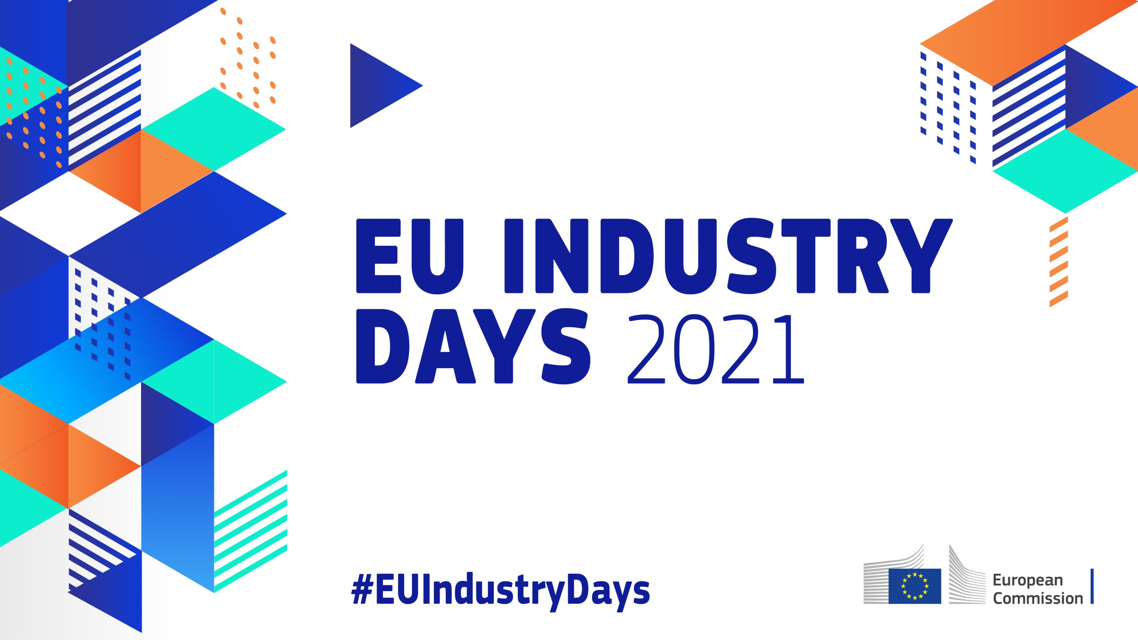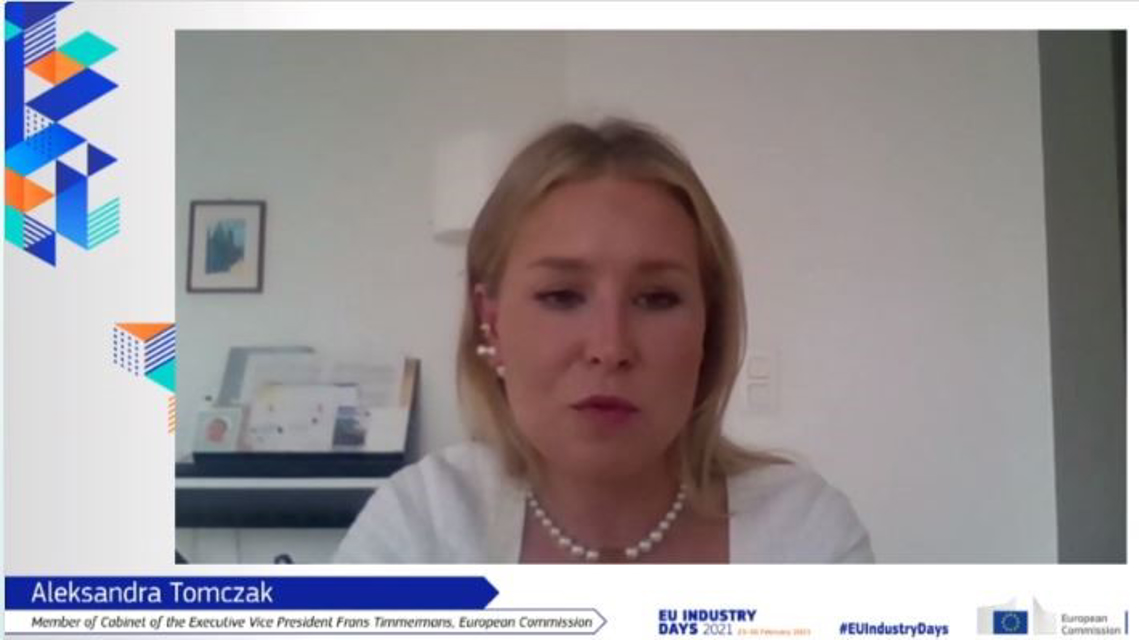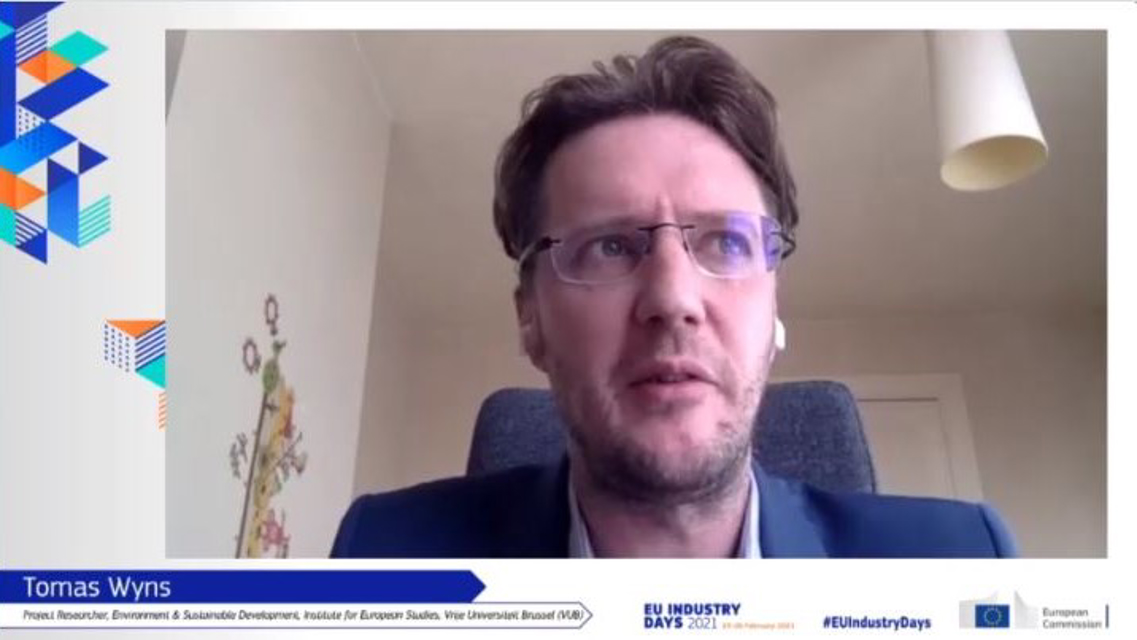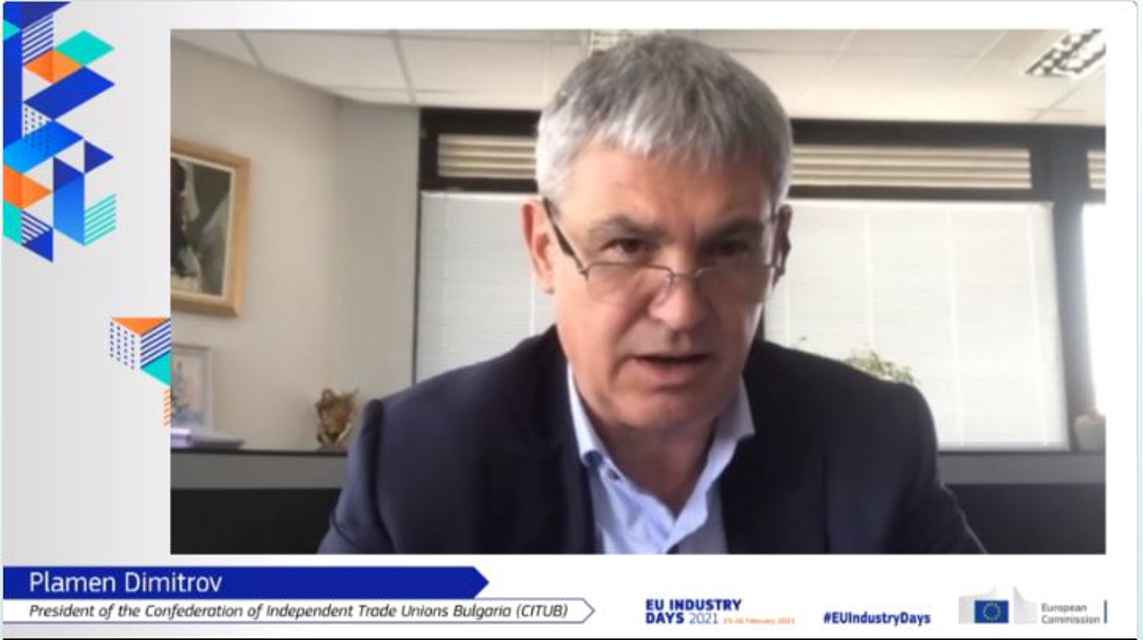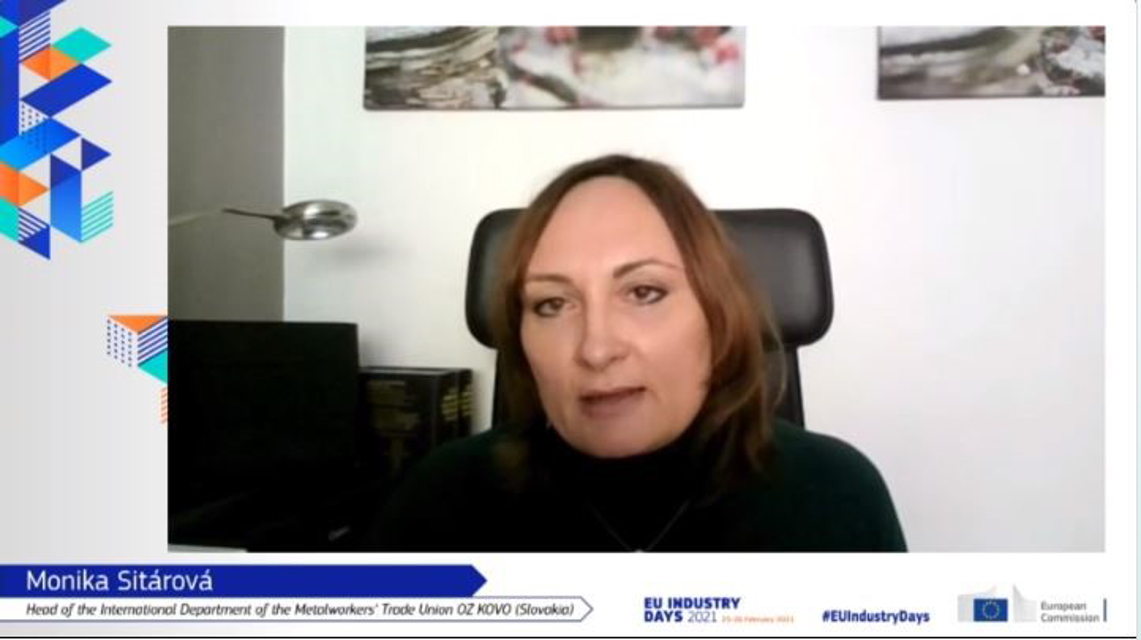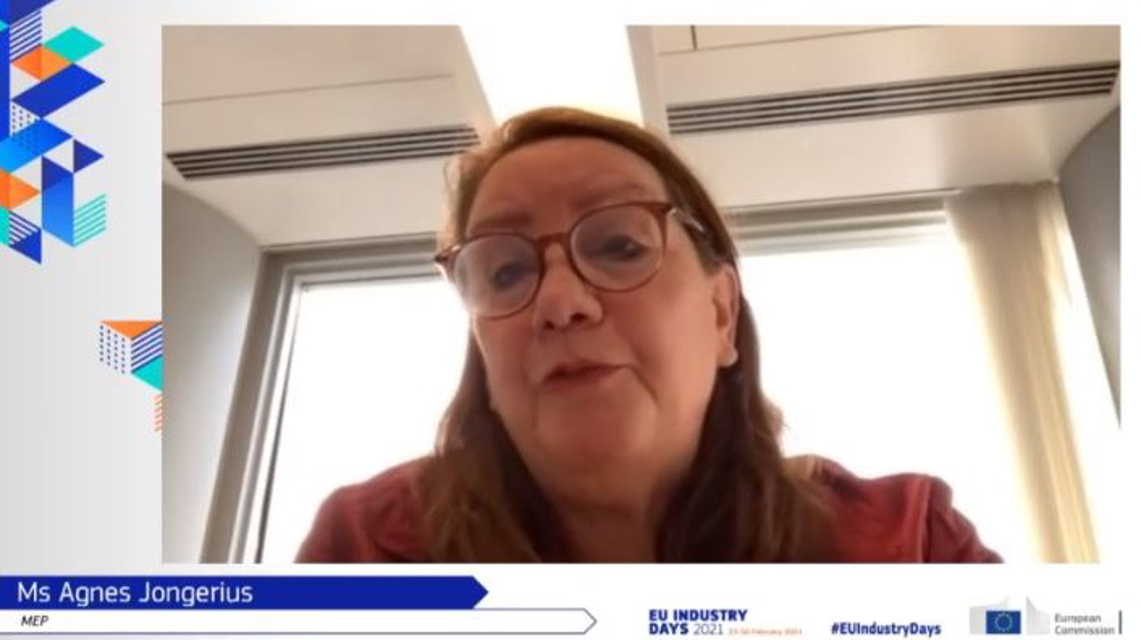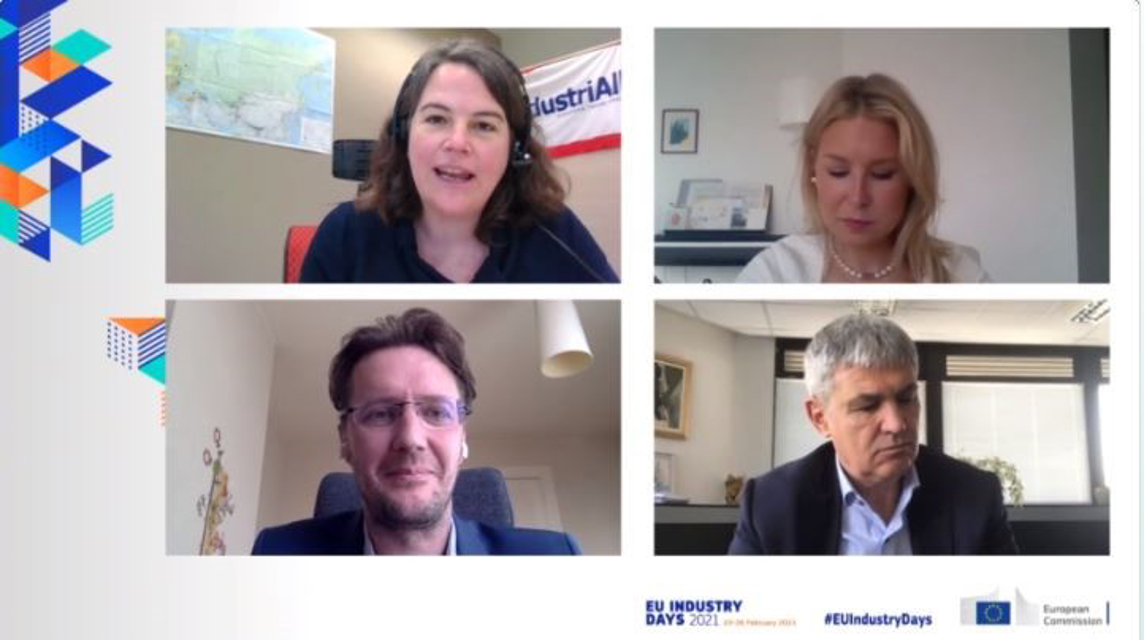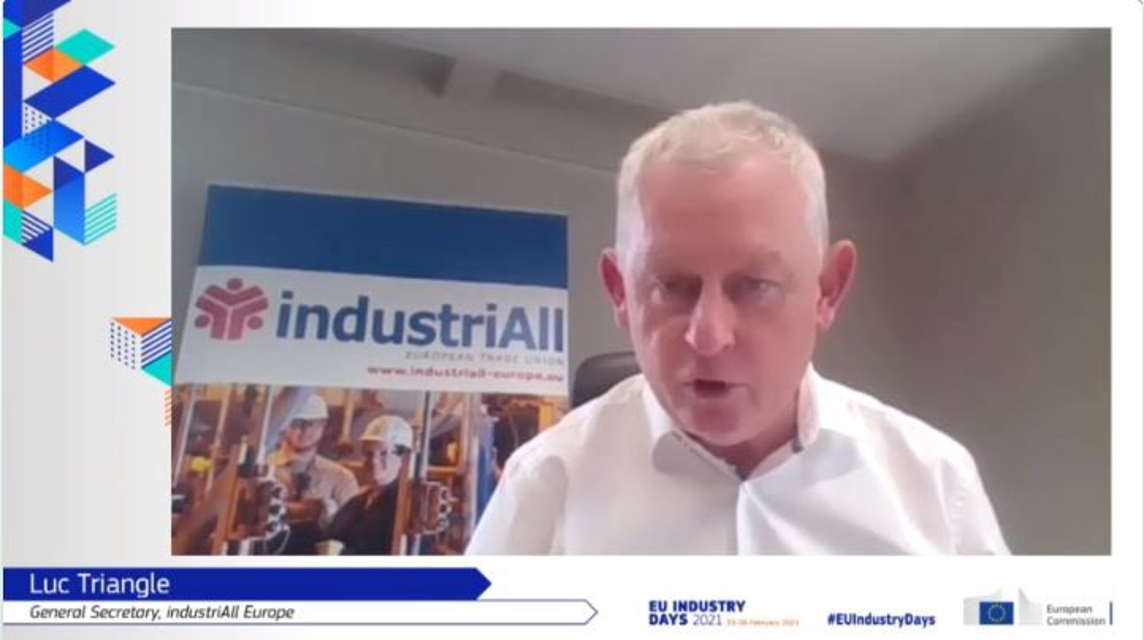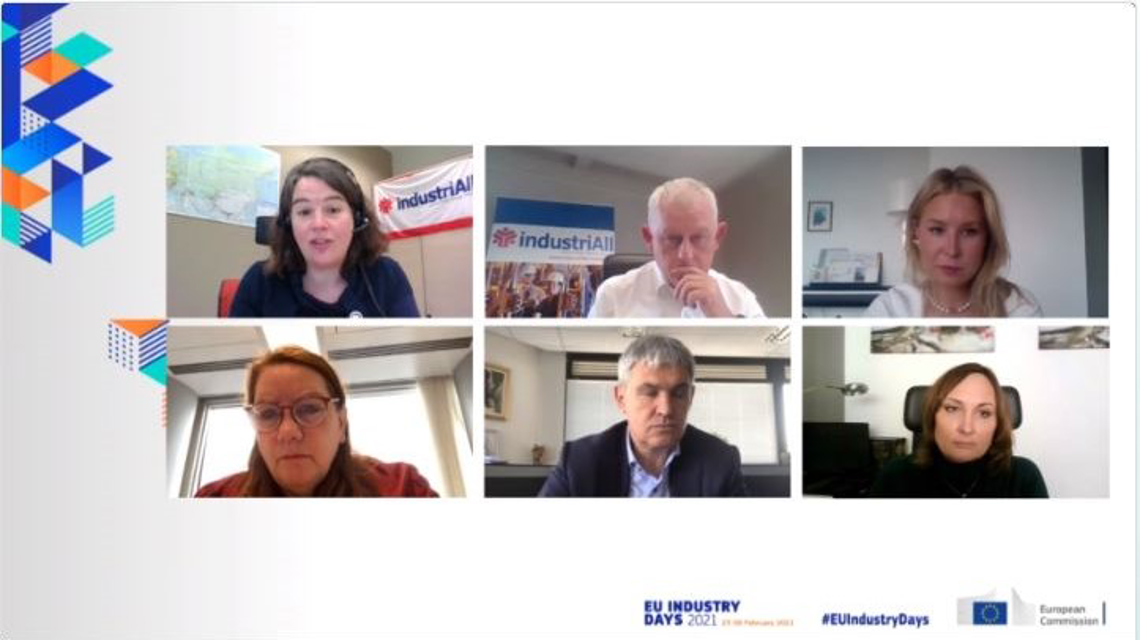Social dialogue and worker participation are the main ingredients to deliver a Just Transition, ensuring that no region and no worker is left behind as we embark on the European Green Deal and the rapid decarbonisation towards a climate-neutral economy by 2050.
IndustriAll European Trade Union today hosted a session as part of the official EU Industry Days to address the specific challenges faced by industrial workers in Central and Eastern European heavy industries resulting from the transition to a low-carbon economy. It was an opportunity to hear the concerns and proposals raised by trade unions in the region and presented previously during a recent series of roundtables co-organised with the ITUC’s Just Transition Centre.
IndustriAll Europe’s General Secretary, Luc Triangle, opened the workshop, reminding that:
“Social dialogue and worker participation are the main ingredients to deliver a Just Transition, ensuring that no region and no worker is left behind as we embark on the European Green Deal and the rapid decarbonisation towards a climate-neutral economy by 2050. Today we are witnessing sustained attacks on unions and social dialogue in a number of countries and this is incompatible.”
Aleksandra Tomczak of Executive Vice-President Frans Timmermans’ Cabinet set out the European Commission’s vision of how the European Green Deal can be delivered and also benefit industrial workers in Central and Eastern Europe. Agnes Jongerius MEP (co-Rapporteur of the European Parliament report on Just Transition) gave her insights into how to make the Green Deal just for all regions.
Participants heard about the need for a stronger regional dimension in the design of European industrial policy, with Monika Sitárová from the Slovak metal union, OZ KOVO, and Bulgarian General Secretary, Plamen Dimitrov, of CITUB, setting out the experiences of their colleagues across the region. Tomas Wyns, Project Researcher on Environment & Sustainable Development at the Institute for European Studies, Vrije Universiteit Brussel (VUB), set out the industrial challenges and opportunities for industry in the region and the need for a comprehensive European industrial strategy.
Economic disparities across European regions are persistent and even deepening, leading to virtuous circles in the core regions, and vicious circles in the periphery. Industrial and technological progress has strong agglomeration effects and industry (especially the new emerging value chains) tends to be concentrated in the more innovative, leading regions.
The transition has an important impact on the carbon-dependent and less developed regions. All this is leading to a growing number of ‘left-behind’ and ‘de-industrialised’ regions in the EU, and these are not only regions formerly dependent on coal. In the past, the comparative advantage that attracted investments to the region depended on low labour costs. This model has catapulted the CEE countries into the low-wage trap, which prevent them from transferring technologies and modernising their industrial base. Companies have no incentives to invest in expensive low-carbon, automated and robotised technologies as long as their returns on investments will be slow and limited, due in part to cheap labour costs.
The event was moderated by industriAll Europe Deputy General Secretary Judith Kirton-Darling.
Contact: Andrea Husen-Bradley (press and communication)
